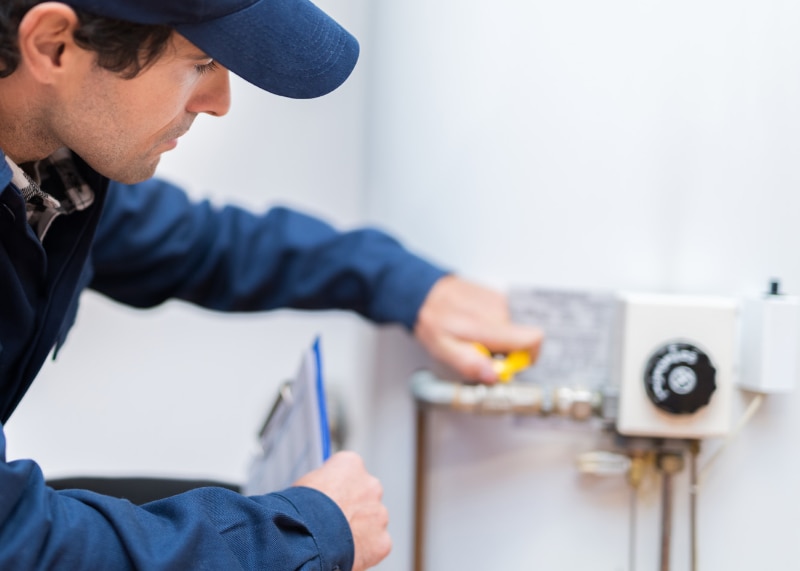Common Water Heater Complications
Common Water Heater Complications
Blog Article
In this article below you'll find additional exceptional insight when it comes to Water Heaters Problems.

Envision starting your day without your regular hot shower. That already establishes a bad tone for the rest of your day.
Every house requires a trustworthy water heater, however just a couple of know exactly how to take care of one. One easy method to maintain your hot water heater in top shape is to look for mistakes routinely as well as repair them as quickly as they show up.
Remember to turn off your water heater prior to smelling about for faults. These are the water heater faults you are most likely to experience.
Water as well hot or as well chilly
Every water heater has a thermostat that identifies just how warm the water obtains. If the water entering your home is too hot regardless of establishing a practical maximum temperature, your thermostat might be defective.
On the other hand, too cold water might result from a stopped working thermostat, a broken circuit, or inappropriate gas circulation. As an example, if you utilize a gas water heater with a broken pilot light, you would obtain cold water, even if the thermostat is in perfect problem. For electric heating systems, a blown fuse might be the culprit.
Not nearly enough hot water
Water heaters can be found in numerous dimensions, depending upon your warm water needs. If you run out of warm water prior to everyone has actually had a bathroom, your water heater is also small for your family size. You ought to take into consideration installing a larger water heater storage tank or going with a tankless water heater, which takes up less area and also is more resilient.
Unusual noises
There are at least five type of noises you can speak with a water heater, yet one of the most typical interpretation is that it's time for the water heater to retire.
To start with, you ought to be familiar with the normal appears a hot water heater makes. An electrical heater might appear different from a gas-powered one.
Popping or banging audios normally indicate there is a slab of debris in your storage tanks, and it's time to cleanse it out. On the other hand, whistling or hissing noises may merely be your shutoffs letting some stress off.
Water leaks
Leakages could originate from pipes, water links, valves, or in the worst-case scenario, the storage tank itself. Over time, water will certainly corrode the storage tank, and discover its escape. If this happens, you need to change your water heater immediately.
However, before your adjustment your entire tank, make sure that all pipes are in place which each shutoff functions perfectly. If you still need assistance determining a leak, call your plumber.
Rust-colored water
Rust-colored water suggests among your hot water heater parts is rusted. It could be the anode rod, or the storage tank itself. Your plumber will be able to recognize which it is.
Warm water
Regardless of exactly how high you set the thermostat, you won't get any kind of warm water out of a heating unit well past its prime. A hot water heater's efficiency may reduce with time.
You will also obtain warm water if your pipes have a cross link. This implies that when you activate a faucet, warm water from the heating system streams in alongside routine, cold water. A cross link is easy to area. If your warm water taps still follow shutting the hot water heater valves, you have a cross connection.
Discoloured Water
Corrosion is a significant cause of unclean or discoloured water. Rust within the water container or a falling short anode pole might trigger this discolouration. The anode pole safeguards the tank from rusting on the inside and also ought to be checked yearly. Without a rod or a correctly operating anode pole, the hot water promptly rusts inside the storage tank. Call a specialist water heater service technician to determine if replacing the anode pole will certainly deal with the problem; if not, replace your hot water heater.
Verdict
Preferably, your hot water heater can last 10 years before you need a change. Nevertheless, after the 10-year mark, you might experience any one of these mistakes extra routinely. At this point, you ought to add a brand-new hot water heater to your budget plan.
How To Troubleshoot 3 Common Water Heater Problems in Twin Cities
The Water Heater Is Leaking
A leaky cold water inlet valve A loose pipe fitting A leaky temperature and pressure relief valve A corroded anode rod A cracked tank Turn Off Your Water Heater:
Shut off your gas water heater by turning the gas valve on the unit to the “OFF” position. Shut off your electric water by switching its power off at your electrical panel. Look for a two-pole breaker labeled “water heater” and turn it to the “OFF” position. Move the ball valve connected to the water heater to be perpendicular to the piping at a 90° angle. Look for the Leak:
Depending on whether the water is coming from the tank's top or bottom, you’ll want to look for the leak in different locations.
If the leak comes from the top of the tank, carefully look for water escaping from the cold water inlet valve or loose pipe fittings. Rusted hot and cold water valves can have loose connections with the tank, with water leaking out of them.
https://mspplumbingheatingair.com/blog/how-to-troubleshoot-3-common-water-heater-problems
As a keen reader on Water Heater Repair and Troubleshooting, I figured sharing that segment was beneficial. Sharing is nice. Helping people is fun. Thanks a bunch for your time. Visit us again soon.
Your search ends; experts here. Report this page